How the illicit trade in sea snails came to rival rhino poaching
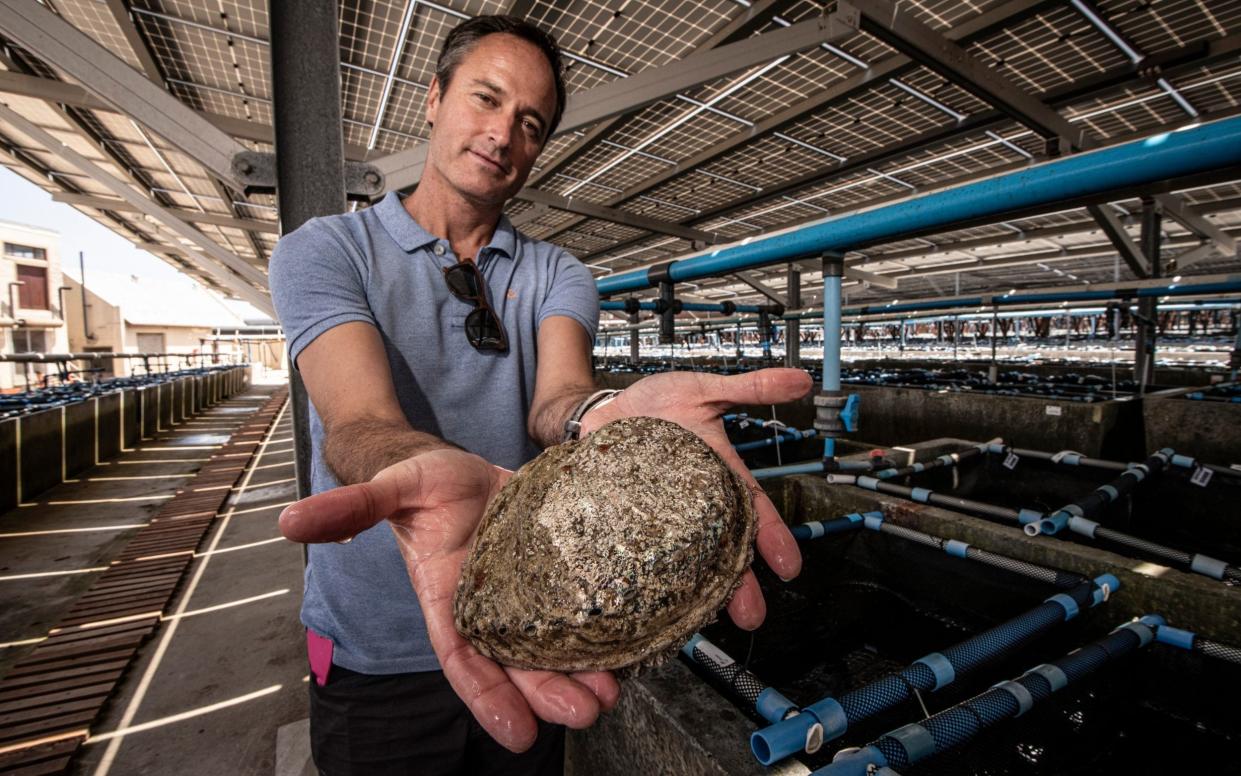
The poachers who gather on the windswept beaches of South Africa’s rocky Cape coast are immediately recognisable by the tools of their trade.
Pick-up trucks drop them off clad in wetsuits and carrying diving cylinders, then they head out into the waves on fast rubber boats.
Their work is not for the faint-hearted. The waters can be treacherous and divers must also avoid becoming prey for the area’s plentiful great white sharks.
Yet the poachers consider their quarry to be worth the risk. There are few other ways to feed a family along the coast, and they are seeking a type of sea snail that Chinese diners consider a delicacy and will pay handsomely for.
Demand for the hand-sized abalone found among the underwater kelp forests is so high it underpins an international smuggling trade estimated to be worth as much as nearly £100 million each year.
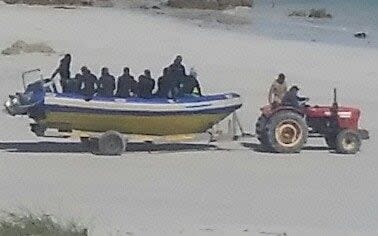
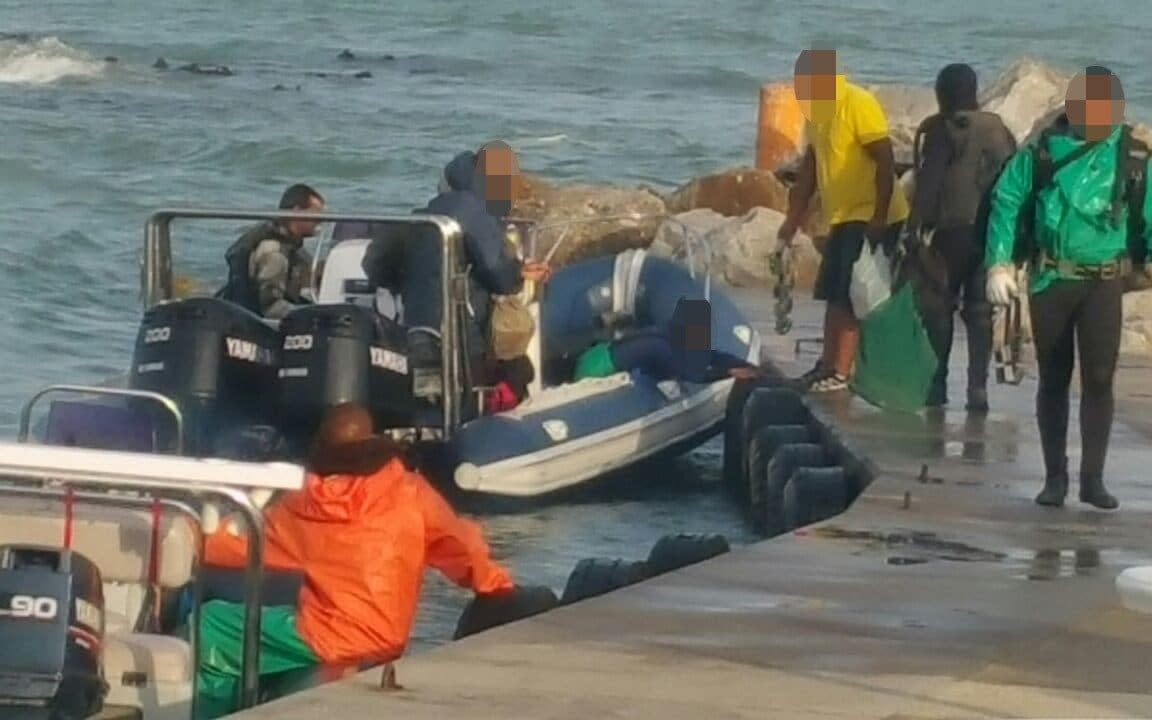
The animals can fetch hundreds of dollars per kilogram at their destination and the profits are attractive enough to pull in Chinese crime syndicates from as far afield as Hong Kong, creating a corrosive nexus between local and international gangsters.
While the poaching and smuggling of sea snails may not excite the same public outrage as the high-profile ivory trade, conservation experts studying the business say it can be equally damaging.
“We know that the impacts on people, on the species, potentially on the environment, are terrible,” says Markus Burgener, an abalone expert with Traffic, a Cambridge-based campaign group monitoring wildlife trafficking.
“People are never going to relate emotionally in the same way to a sea snail as they will to a big charismatic animal like an elephant or a rhino. But the impact of organised crime on those communities is equally as bad, absolutely.”
Traffic estimates that around 3,000 tonnes of abalone is poached each year from South Africa, with the great majority of it taken through neighbouring countries and then on to Hong Kong.
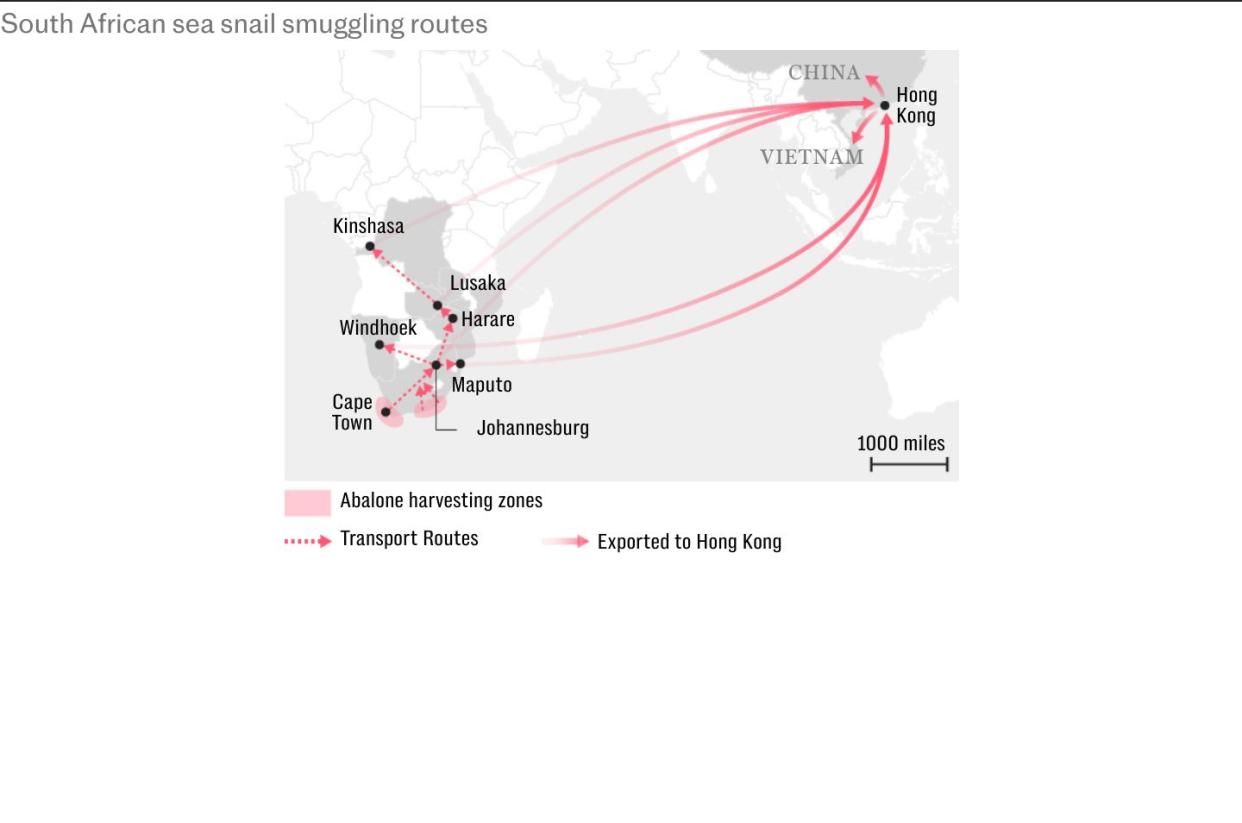
The animals, known to scientists as Haliotis midae, and to locals as perlemoen, can grow to a majestic nine inches (23cm) across and deploy impressive-looking tentacles.
But it is the golden meat of its muscular foot which makes it so highly prized.
Whole abalone are a status symbol delicacy for Chinese gourmets, alongside shark fin, sea cucumber, and dried fish maw. The snails can take pride of place at weddings and celebratory meals.
“It’s become a delicacy due to tradition and cultural use,” explains Johan Hugo, whose family’s Abagold business in Hermanus farms around 600 tonnes of abalone in seawater tanks for export each year.
“It stems back to where the ancient Japanese emperors would take gifts to the Chinese kings and they would use the abalone as part of that.”
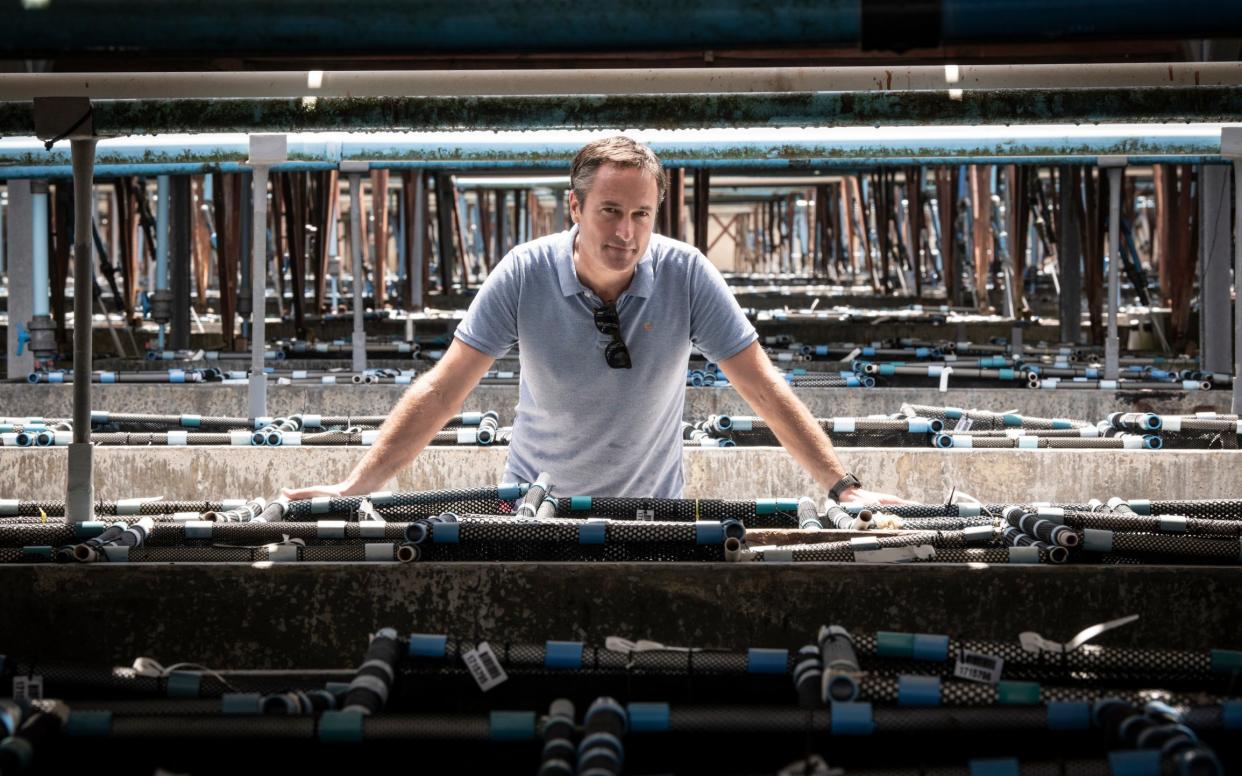
While different abalone species are harvested from Australia to Alaska, the South African version is considered the closest in quality to the prized Japanese snails.
Legitimate farms like Abagold have growing businesses selling tinned abalone to the Far East. But the scale of the demand, and a misconception that the biggest wild specimens taste the best, keep feeding the poaching business.
“Poaching is still rife,” says Mr Hugo. “On the farms, for instance, the quality of the meat is on a par with the wild because they eat the same seaweed. The size is the issue. Unfortunately, there is a component of the market that likes that trophy – they like a big shell.”
The amount of abalone being poached each year in South Africa dwarfs the overall legal annual fishing quota of 56 tonnes. In 2018 the total illegal catch is thought to have hit a high of more than 5,000 tonnes.
Small-scale abalone fishing has long been a pastime for those along the Cape coast, but the illegal trade only exploded in the 1990s.
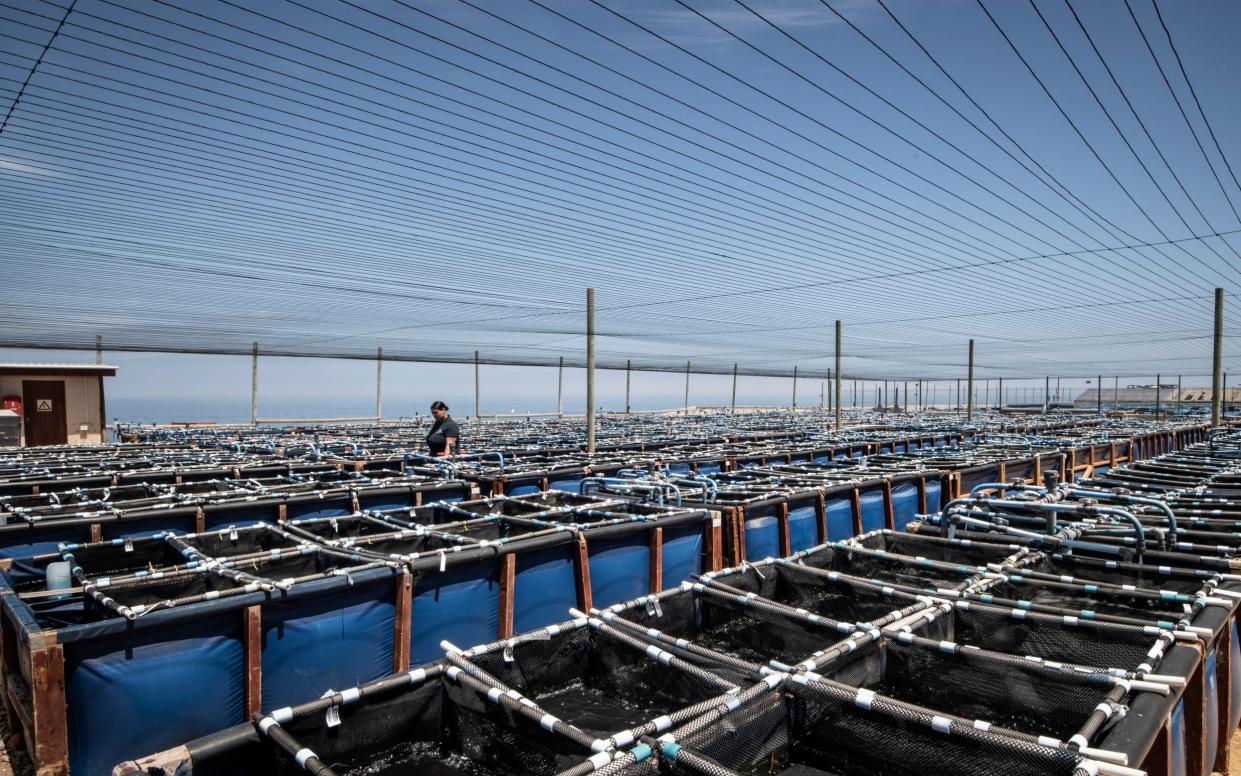
The market grew quickly with the emergence of China’s new middle class. Chinese gangs began doing business with Cape Town’s gangs, swapping the chemicals needed to make crystal meth in return for illicit abalone.
At the same time, though fishing permits were opened up after the end of apartheid, many poor fishermen who had expected to be able to make a legal living instead found themselves being either cut out or given tiny quotas. Allowances were then cut further to try to protect the abalone. Many just kept fishing anyway.
Activists trying to stop the trade complain that it is proceeding almost unchecked. A resident of a town notorious for smuggling on the Overberg coast said he had at times seen 150 divers waiting to be ferried out into the ocean.
He said: “At first they just dived at night and were cagey and on the sly, but as they progressed and the government couldn’t stop them, they grew bolder and bolder.
“Now you will see pick-up loads of divers in their wetsuits with their diving tanks on their backs going to the sea. No one stops them.”
“It’s such a lucrative business. The police haven’t got the manpower and the infrastructure to stop these guys. They haven’t got enough vehicles, they haven’t got enough officers on the ground. It’s just out of hand.
“It’s an organised crime. It’s very, very well organised, and the big gangs are behind this.”
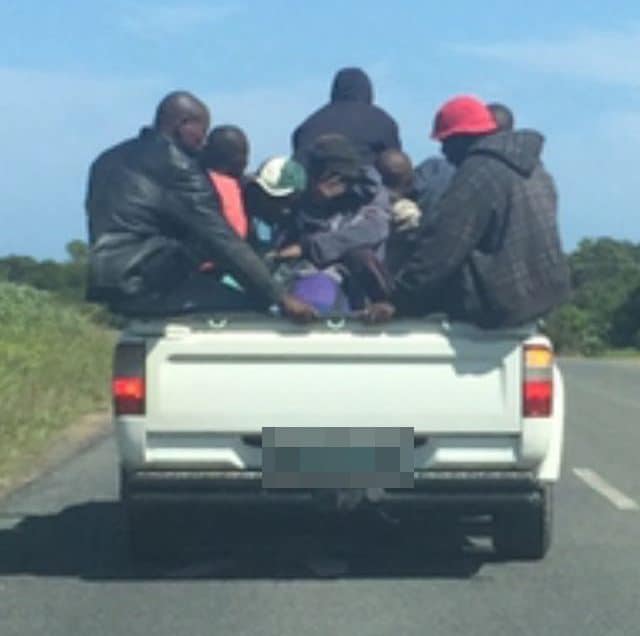
The sums involved bring all the violence and corruption of other mafia businesses.
In 2019, three people were shot dead in the town of Gansbaai in what was alleged to be an abalone poaching turf war between rival gangs called the Terrible Josters and the Junior Mafia.
In August 2022, Cape Town police officers were alleged to have hijacked and stolen a consignment of farmed abalone.
At the higher level, the trade is thought to be overseen and directed by Chinese crime gangs.
Divers and conservationists give anecdotal accounts of the trade devastating the abalone population, but poachers appear to be still finding large quantities of the creatures.
“The first 100m to 200m from the high water mark, there’s nothing left, there’s really nothing left,” said one resident who declined to be named.
“I have been diving there for 30 years and there’s nothing there, just marks where the abalone was. All you see are the shells.”
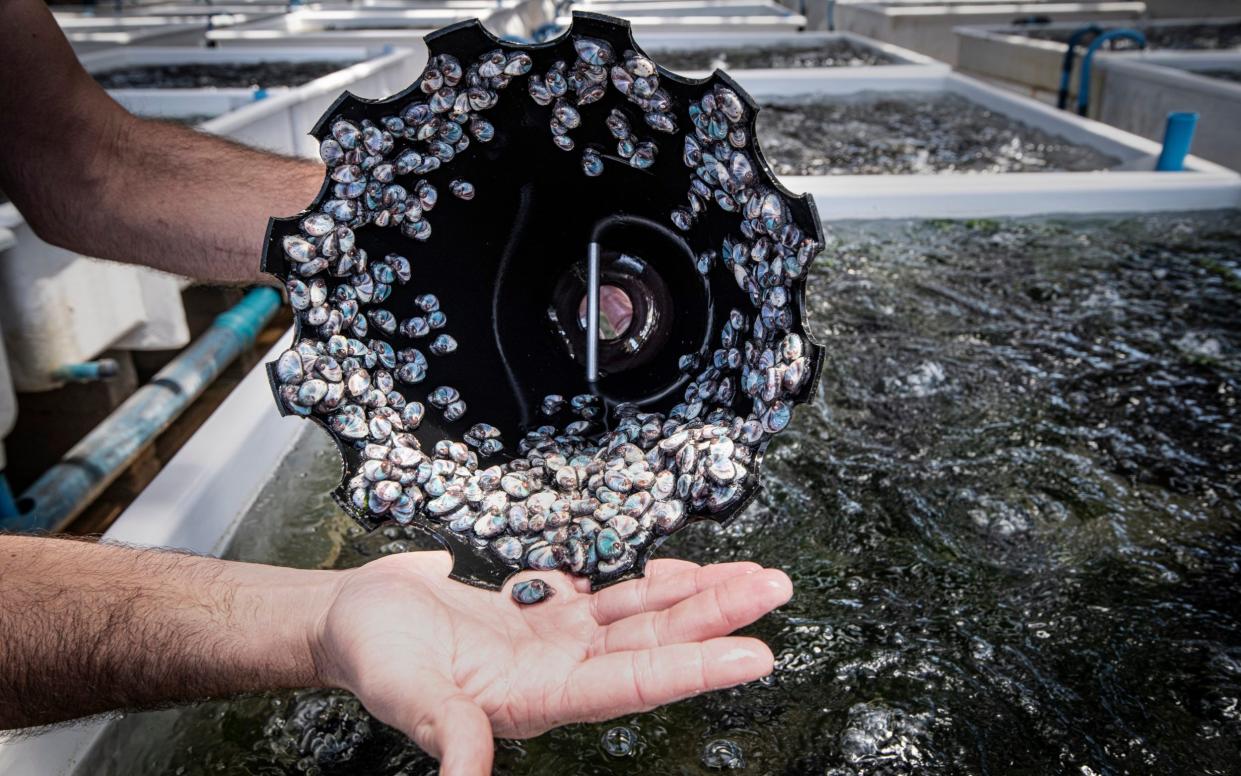
The International Union for Conservation of Nature (IUCN) classes South African abalone as endangered and “under extreme pressure in the wild owing to uncontrolled poaching”.
Mr Hugo said successful legitimate farms like Abagold were easing the pressure on wild stocks, and he believed there was a keen market in the Far East for sustainable, good-quality, legal abalone.
He said: “Poached abalone, the quality is often not great. They don’t have facilities to can it, it’s often dry, it’s left under bushes. It’s not great quality and it’s not consistently supplied.”
But despite that, Traffic says the poaching is continuing “almost uncontrolled”.
The trade brings money not just to the divers, but to an army of support staff, from lookouts, to drivers, to those who store and dry the illicit goods.
Mr Burgener said that without viable alternative jobs, people on the coast would still be drawn to the trade.
He said: “You can keep arresting poachers seemingly forever, because there are enough poor, unemployed, hungry people who want a different future who are prepared to take these risks.
“You can arrest them and there are 20 people prepared to step into their place.”
Protect yourself and your family by learning more about Global Health Security


